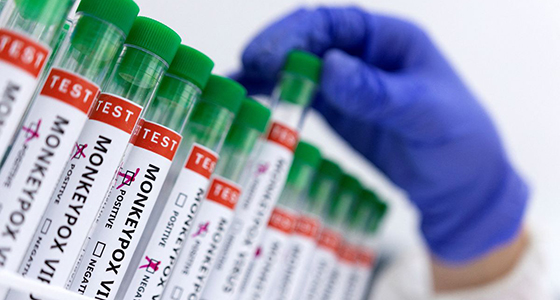Monkeypox is a rare infection that's mainly found in parts of west or central Africa. There have been some recent cases in the UK, but the risk of catching it is low. Symptoms of the Monkeypox virus are:
- High temperature
- Headache
- Muscle aches
- Backache
- Swollen glands
- Shivering (chills)
- Exhaustion

A rash may also appear 1-5 days after the first symptoms occur, this usually begins on the face in 95% of cases. The rash is sometimes confused with Chickenpox. It starts as raised spots, which turn into small blisters filled with fluid. These blisters eventually form scabs which later fall off. The main difference between Monkeypox and Chickenpox is swollen glands. Symptoms usually clear up after a few weeks.
Monkeypox is spread through close contact with people who are already infected, this includes through sexual contact. It spreads through:
- Touching clothing, bedding or towels used by someone with the monkeypox rash
- Touching monkeypox skin blisters or scabs (including during sex)
- The coughs or sneezes of a person with the monkeypox rash.
It is unlikely that if you have not visited west or central Africa, or been in close contact with someone who recently has travelled to those places, that you will have the Monkeypox virus.
If you think you may have the Monkeypox virus, you should call NHS 111. All cases are being followed up by the UK Health Security Agency (UKHSA) who will trace all close contacts and provide advice and treatment as appropriate. You should not go to your local hospital or visit your GP.
If you believe you have caught Monkeypox through sexual contact you should call a sexual health clinic and explain your symptoms. You can find a sexual health clinic on the NHS website.
Monkeypox is a far less transmissible virus than Covid-19 and doesn’t mutate in the same way. Treatment is available for the Monkeypox virus and is usually mild. Most people recover within a few weeks without treatment.
As the infection can spread through close contact, it's important to isolate if you're diagnosed with it. You may be asked to isolate at home if your symptoms are mild.
Posted on Tuesday 7 June 2022